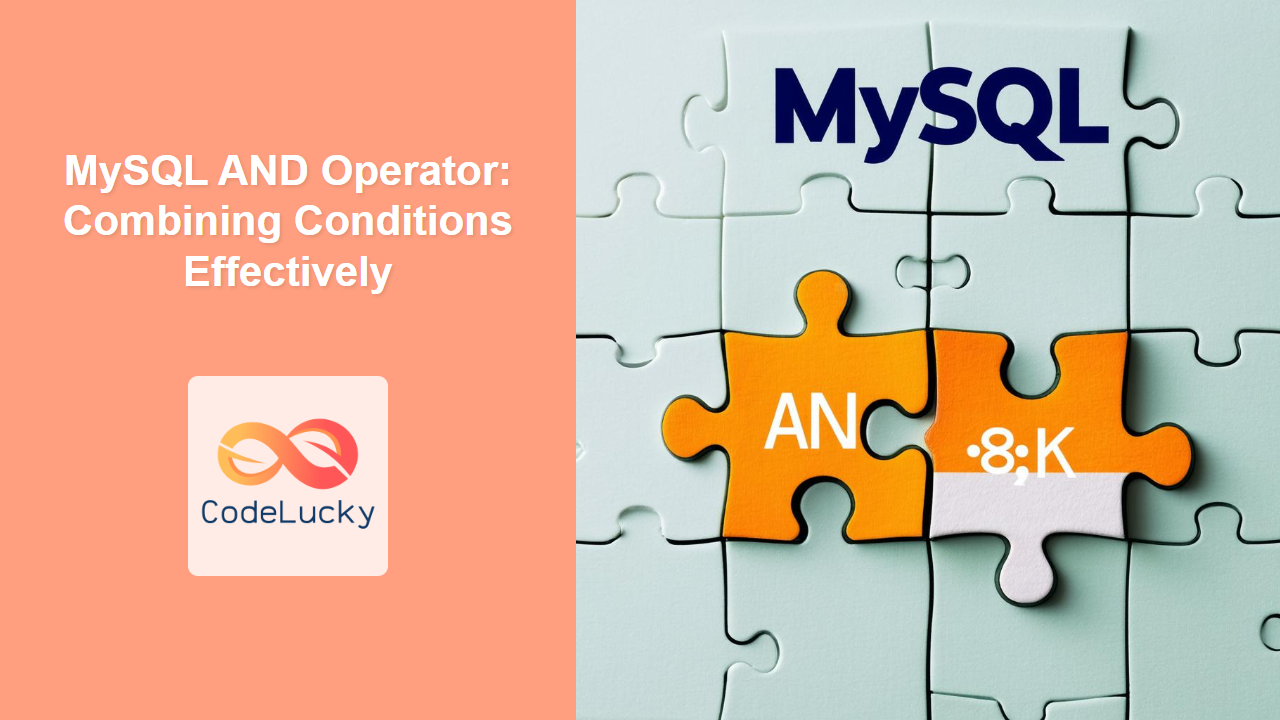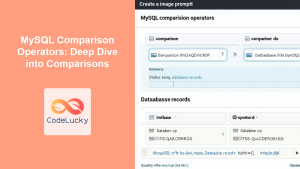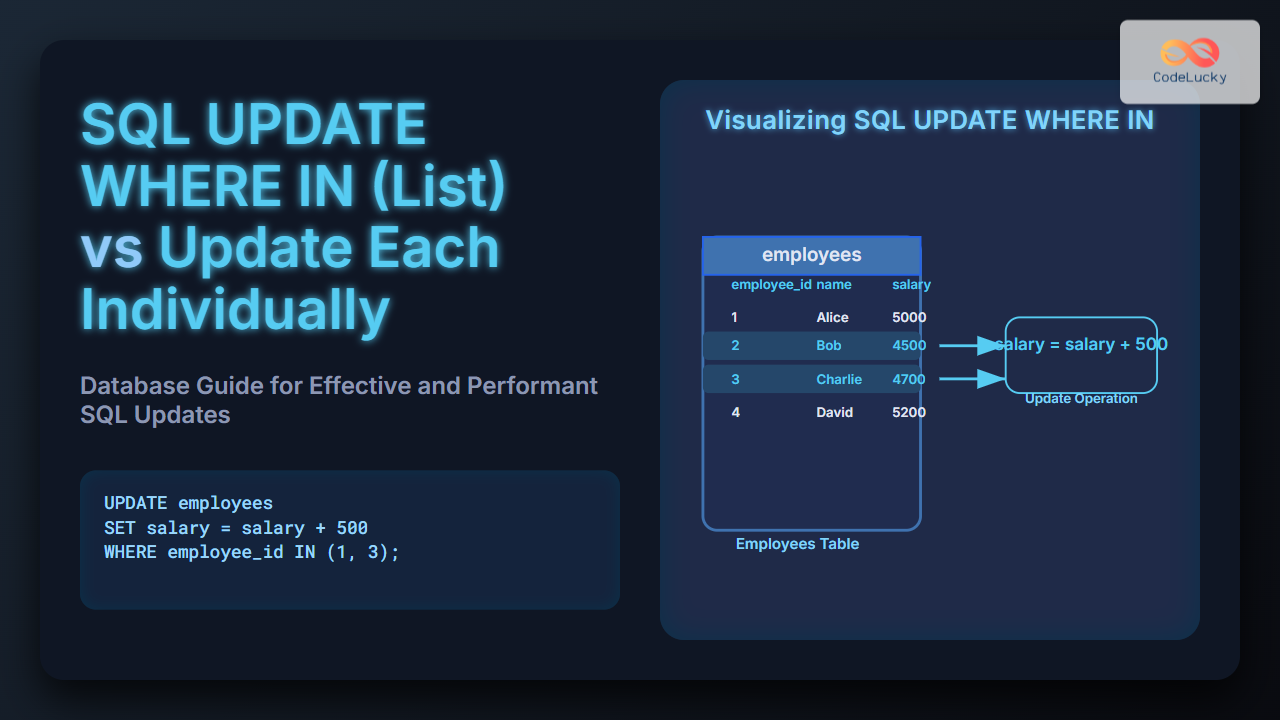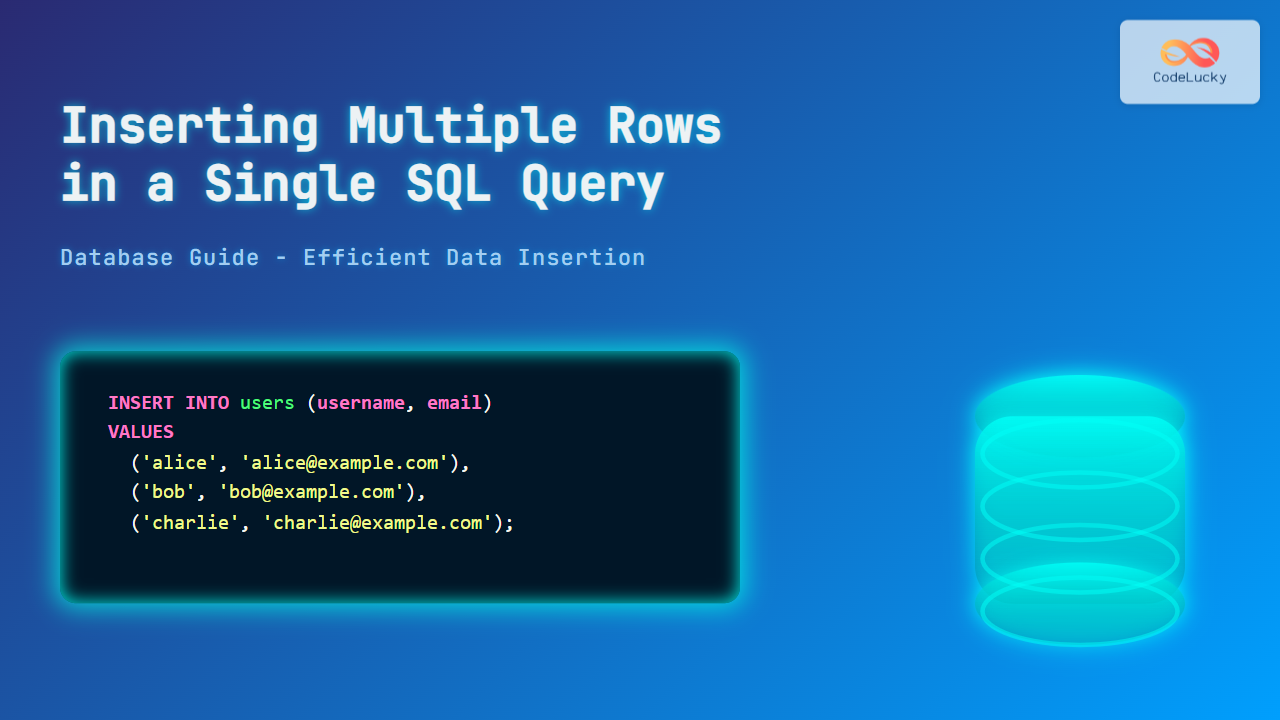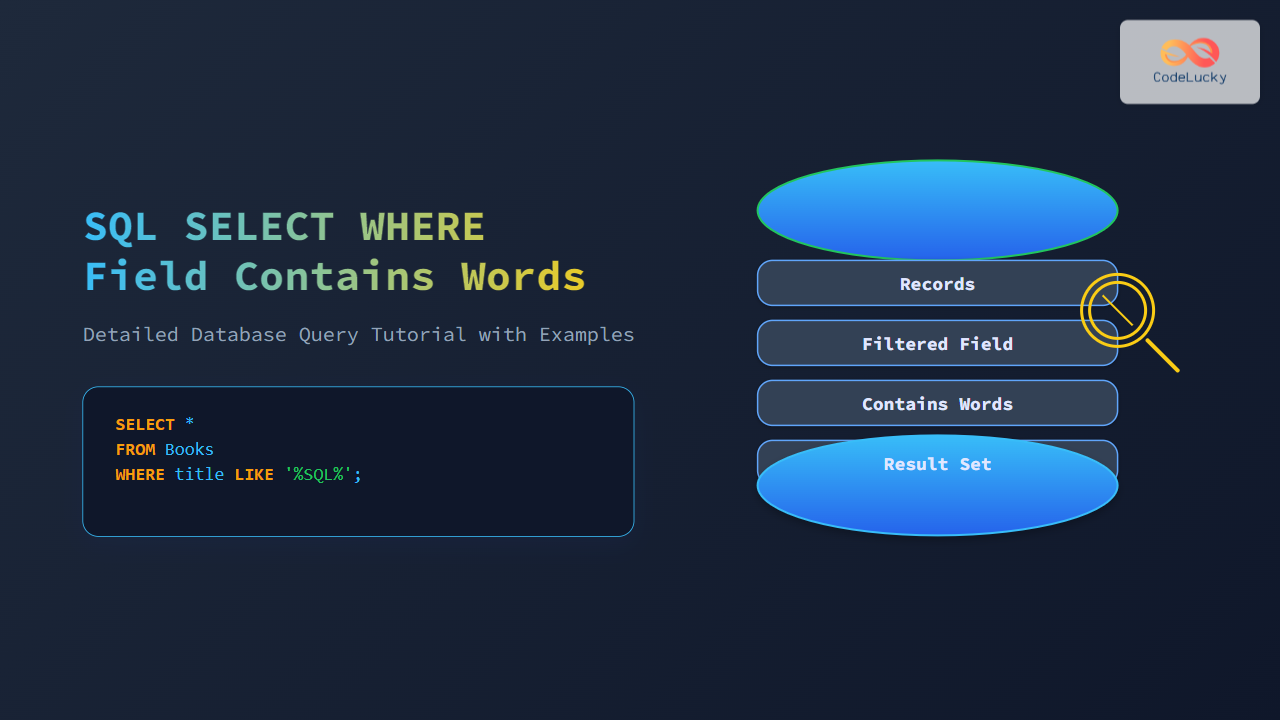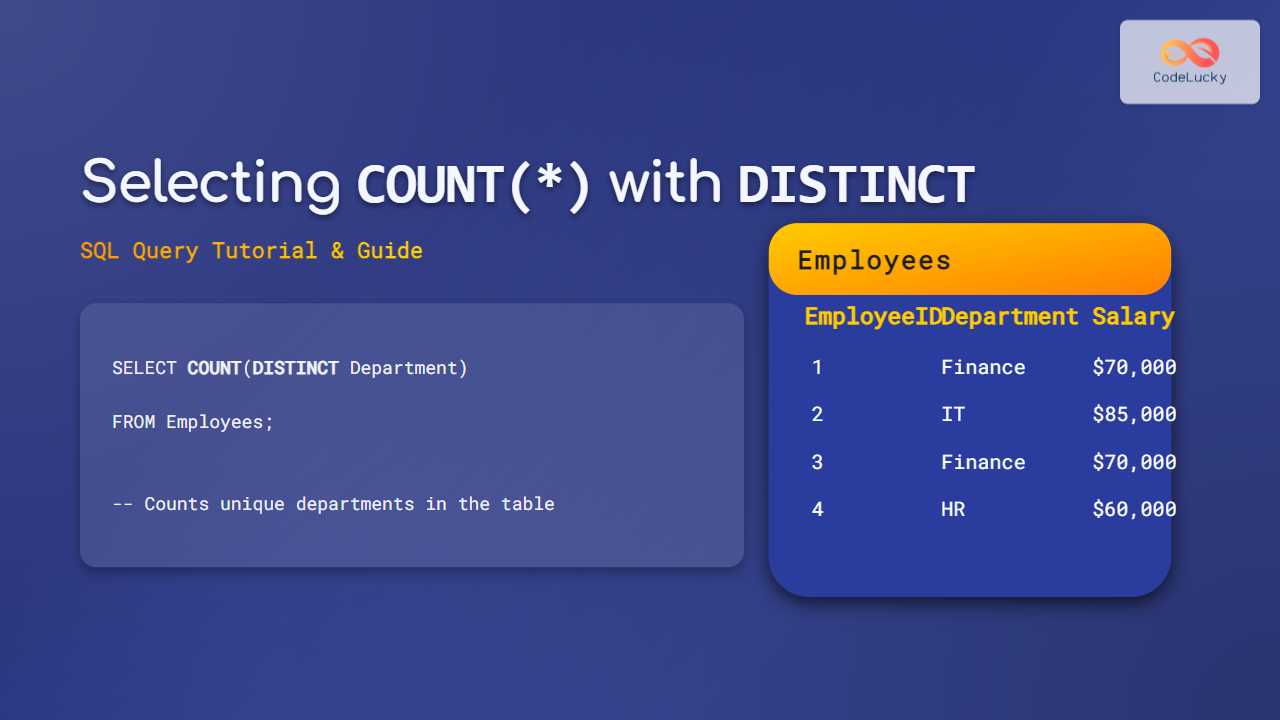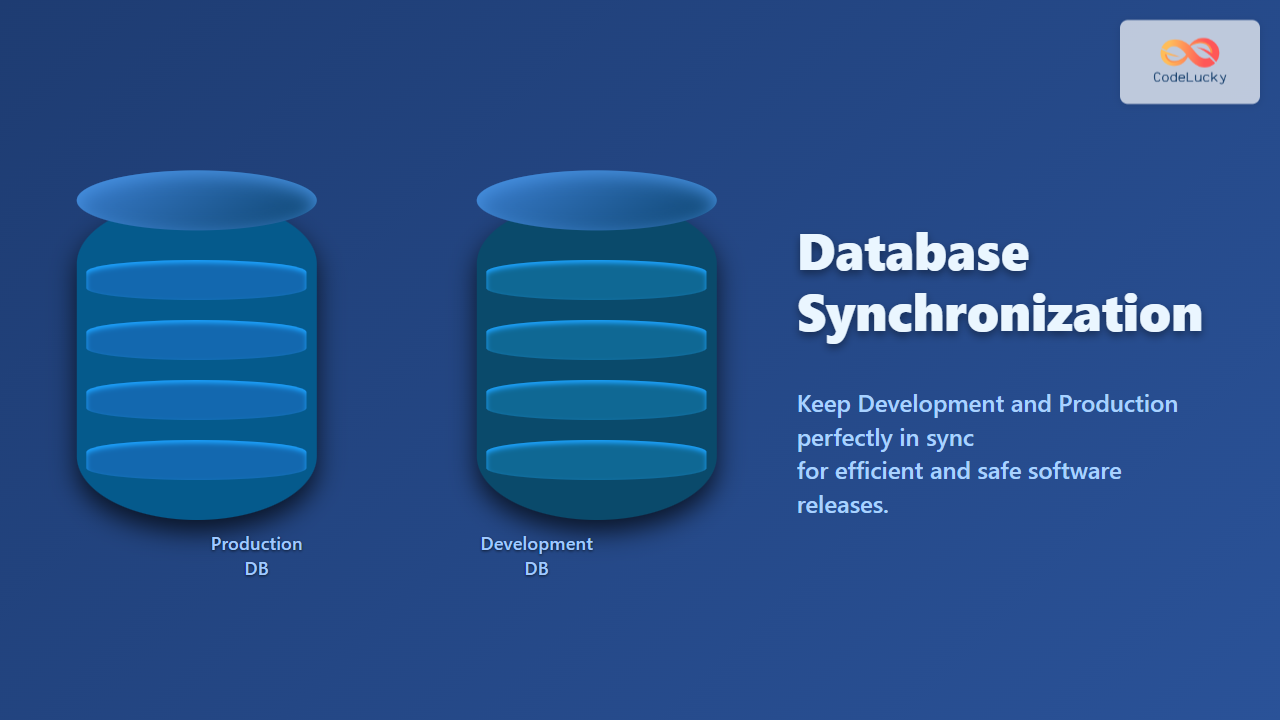The AND operator in MySQL is a fundamental tool for refining your search criteria. It allows you to combine multiple conditions in your WHERE clause, ensuring that only records matching all specified criteria are returned. Mastering the AND operator is key to writing precise and efficient SQL queries. 💡 Fun Fact: The concept of logical AND dates back to ancient Greek philosophy, where it was used in formal logic and reasoning!
Why is the AND Operator Important?
The AND operator lets you:
- Combine multiple filters to narrow your search results.
- Create specific queries that match complex requirements.
- Increase the accuracy of data retrieval from your database.
- Improve the performance of data operations by reducing the scope of data processed.
🎯 Real World Application: Consider an e-commerce site where you want to find all products that are in stock AND have a specific discount. The AND operator will allow you to achieve this precisely.
Basic Syntax of the AND Operator
The basic syntax is straightforward:
SELECT column1, column2, ...
FROM table_name
WHERE condition1 AND condition2;
In this structure, both condition1 and condition2 must be true for a row to be included in the result set. Let’s look at an example using our customers table:
SELECT *
FROM customers
WHERE city = 'Delhi' AND first_name = 'Priya';
Output:
| customer_id | first_name | last_name | city | |
|---|---|---|---|---|
| 2 | Priya | Sharma | [email protected] | Delhi |
🌟 Pro Tip: You can chain multiple AND operators together to combine any number of conditions:
SELECT *
FROM orders
WHERE total_amount > 100
AND order_date > '2023-06-01'
AND order_date < '2023-07-01';
Understanding Precedence Rules
When combining the AND operator with other logical operators such as OR, it’s crucial to understand precedence rules. The AND operator has a higher precedence than OR. This means that AND operations are evaluated before OR operations.
For example:
SELECT *
FROM customers
WHERE city = 'Delhi' OR city = 'Mumbai' AND first_name = 'Raj';
Without parenthesis, this query is equivalent to:
SELECT *
FROM customers
WHERE city = 'Delhi' OR (city = 'Mumbai' AND first_name = 'Raj');
This will first find customers who live in Mumbai AND whose first name is Raj, and then return all customers who live in Delhi, regardless of their first names.
To change the order of operations, you can use parentheses. For example, to select customers who live in Delhi or Mumbai and whose first name is Raj, you would write:
SELECT *
FROM customers
WHERE (city = 'Delhi' OR city = 'Mumbai') AND first_name = 'Raj';
This query will first find customers who live in Delhi or Mumbai, then filter only those whose first name is Raj.
💡 Fun Fact: Using parentheses in your SQL query is similar to using them in algebra! It dictates the order of operations making the intention of the query crystal clear.
Common Use Cases of the AND Operator
-
Filtering by Multiple Criteria:
SELECT * FROM products WHERE category = 'Electronics' AND price < 500;This finds all electronics products that cost less than $500.
-
Date Range Queries:
SELECT * FROM orders WHERE order_date >= '2023-06-01' AND order_date <= '2023-06-30';This selects orders that were placed in June 2023.
-
Combined Text and Numeric Filtering:
SELECT * FROM employees WHERE department = 'Sales' AND salary > 60000;This retrieves employees in the Sales department who earn more than $60,000.
-
Checking Multiple Conditions in an Inventory:
SELECT * FROM inventory WHERE product_name LIKE '%Laptop%' AND quantity > 10;
This query gets all inventory items where the product name contains “Laptop” and we have more than 10 in stock.
Performance Considerations
Using the AND operator effectively can significantly impact query performance. Here are a few points to keep in mind:
-
Index Usage: Make sure that columns used in
ANDconditions are indexed. The MySQL query optimizer can leverage indexes to quickly locate matching rows, thus avoiding a full table scan, which is less efficient. -
Specificity: Order your conditions to place the most restrictive condition first. This helps MySQL quickly reduce the number of rows it needs to check, enhancing performance. For example, if you have a column with a few unique values, put that first.
-
Avoid Functions in Conditions: When possible, avoid applying functions to columns in your
WHEREclause. Doing so prevents MySQL from using indexes effectively.- Instead of:
WHERE YEAR(order_date) = 2023, prefer:WHERE order_date >= '2023-01-01' AND order_date <= '2023-12-31'
- Instead of:
Common Pitfalls to Avoid
- Forgetting Parentheses: Not using parentheses correctly with mixed
ANDandORoperators can lead to unexpected results. - Incorrect Comparison Operators: Using the wrong operator (e.g.,
=instead ofLIKE) can result in no results being returned. - Performance Issues: Not having indexes on your search columns. This can slow down performance, especially with larger tables.
🌟 Pro Tip: Always test your queries on a development database before running them in production to avoid any issues!
Summary
- The
ANDoperator allows you to combine multiple conditions. - All conditions combined by
ANDmust be true for a row to be returned. - The
ANDoperator has a higher precedence thanOR. - Proper use of indexes and ordering conditions improve query performance.
Next Steps
Now that you’ve mastered the AND operator, you can move on to learn about the OR and NOT operators, to be able to write even more precise queries. Understanding these tools is vital for any database work.
🚀 Final Fact: Mastering logical operators like AND is essential not just for database management, but also for programming in general. The ability to logically combine conditions is a core concept in the computer science field! Keep practicing and exploring these building blocks of SQL!

